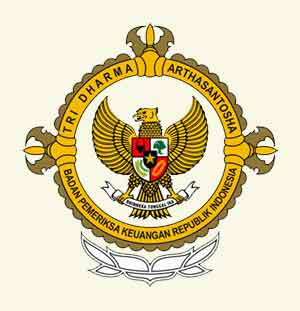
Unlocking the Importance of Good Governance and BPK RI’s Role
Key Takeaways:
- Understanding the concept of good governance is crucial for organizations and societies alike.
- Transparency, accountability, and integrity play vital roles in building and maintaining good governance.
- The Audit Board of the Republic of Indonesia (BPK RI) is responsible for ensuring good governance and minimizing financial misconduct.
The Significance of Good Governance
Good governance is the cornerstone of any successful organization, government, or society. It encompasses the processes, principles, and structures that allow an entity to operate efficiently, ethically, and transparently. Good governance ensures that power is exercised judiciously and in the best interest of the organization and society at large.
Organizations that embody good governance have several inherent advantages. They are better equipped to manage risks, make informed decisions, and foster a culture of accountability and integrity. Good governance also enhances stakeholder confidence and attracts investment and partnerships.
For societies, good governance promotes economic growth, social development, and political stability. It ensures that public resources are utilized effectively and that public services are delivered efficiently. Good governance empowers citizens, protects their rights, and fosters a fair and inclusive society.
The Essence of Transparency, Accountability, and Integrity
Transparency: A fundamental pillar of good governance.
Transparency is the full disclosure of information, rules, processes, and decisions that are vital to stakeholders. By promoting openness, transparency allows stakeholders to understand how organizations and governments operate, fostering trust and confidence. It facilitates accountability and ensures that individuals responsible for decision-making are answerable for their actions.
Accountability: Holding individuals and organizations responsible for their actions.
Accountability is crucial for establishing trust and ensuring compliance with established rules and regulations. Individuals and entities must be accountable for their decisions, performance, and allocation of resources. Accountability mechanisms promote oversight, rectification of mistakes, and prevention of abuses of power.
Integrity: Upholding moral and ethical principles
Integrity involves adhering to moral and ethical principles in all aspects of decision-making and behavior. Individuals with integrity place the public’s interest above personal gain, abstain from unethical practices, and maintain a strong moral compass. Integrity cultivates trust, credibility, and respect among stakeholders, serving as a foundation for good governance.
The Integral Role of Audit Board of the Republic of Indonesia (BPK RI)
Ensuring Financial Accountability
The Audit Board of the Republic of Indonesia (BPK RI) is a government institution responsible for financial oversight, including efficiency, effectiveness, and accountability within government and state-owned enterprises. BPK RI assists in the prevention and eradication of corruption, collusion, nepotism, and other financial irregularities.
By evaluating the financial resources and management of government agencies, BPK RI plays an integral role in ensuring the accountability of public funds. Their audits provide insight into financial performance, compliance with regulations, and risks associated with public finances. Through its independent and objective assessments, BPK RI contributes to the improvement of financial reporting systems and decision-making processes in Indonesia.
Promoting Good Governance Principles
BPK RI actively promotes the principles of good governance within government agencies and state-owned enterprises. Through their audits and recommendations, BPK RI helps identify weaknesses in management, internal controls, and procedures. Their findings facilitate improvements in public service delivery, transparency, accountability, and integrity.
BPK RI’s efforts extend beyond financial audits. They play a crucial role in evaluating the achievement of government programs, ensuring implementation aligns with stated objectives. Through this broader scope, they contribute to the effective and efficient allocation of resources, supporting national development goals.
Frequently Asked Questions
Conclusion
Good governance is essential for creating a prosperous, fair, and sustainable society. Organizations and governments must prioritize transparency, accountability, and integrity to build stakeholder trust and achieve their objectives effectively. The Audit Board of the Republic of Indonesia (BPK RI) plays a vital role in ensuring financial accountability and promoting the principles of good governance. By unlocking the power of good governance, we can pave the way for a brighter future.
Source: insightfullgo.com

